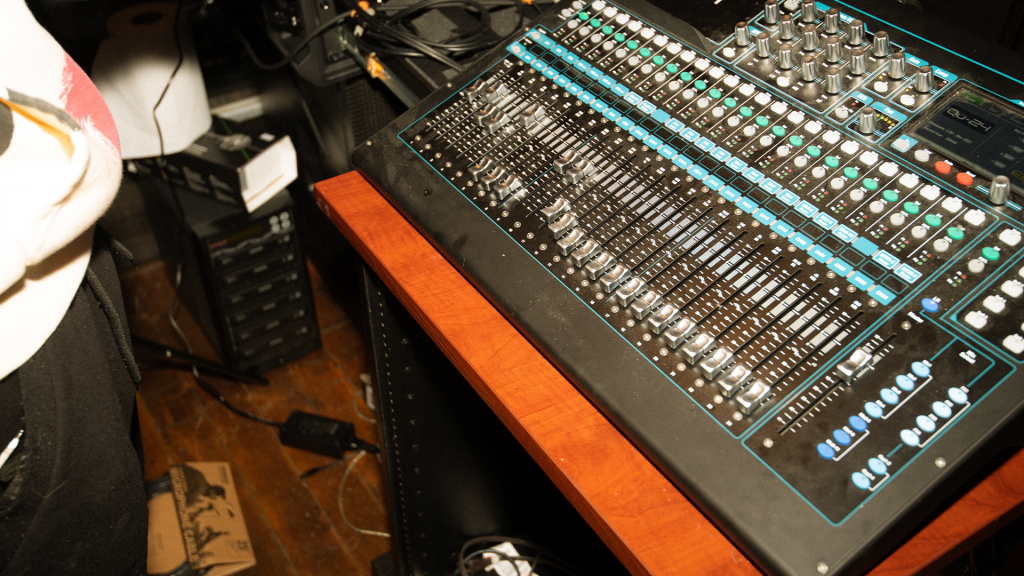Introduction
If you’re an aspiring musician or a passionate artist, you’ve likely dreamt of the day you sign with a record label. That moment when the stars align, and your hard work, dedication, and talent are recognized by industry professionals who believe in your potential to make it big. It’s an exciting prospect, and rightly so – getting signed to a record label can be the catalyst that propels your career to new heights, bringing your music to a larger audience, providing you with access to valuable resources, and opening up opportunities for creative collaborations and financial success.
However, the journey to a record deal isn’t an easy one. The music industry is fiercely competitive, with countless talented musicians vying for the attention of labels and A&R representatives. To stand out from the crowd and maximize your chances of landing that coveted contract, you’ll need to be prepared, persistent, and strategic in your approach.
In this comprehensive blog post, we’ll walk you through the process of getting signed to a record label, from understanding the nuances of the music industry and honing your craft, to creating an eye-catching press kit and targeting the right labels. Along the way, we’ll share expert tips and insights that will help you navigate this challenging yet rewarding journey, while staying true to your artistic vision and passion for music. So, let’s get started on your path to success!
Understanding the Music Industry
Before you embark on your journey to secure a record deal, it’s essential to gain a solid understanding of the music industry and its key players. Record labels come in two main forms: major labels and independent labels. Major labels, such as Universal Music Group, Sony Music, and Warner Music Group, boast a global presence, significant financial resources, and established connections. Signing with a major label can provide you with unparalleled exposure and support, but it may also come with increased pressure and less creative control.
On the other hand, independent labels tend to offer a more personalized approach, often allowing for greater artistic freedom and closer relationships with the label’s team. However, they may have fewer resources at their disposal, which can impact promotional efforts and overall reach. Weigh the pros and cons of each type of label to determine which one aligns with your career goals and artistic vision.
A crucial figure in the record label world is the A&R (Artists and Repertoire) representative. These professionals are responsible for scouting, signing, and nurturing new talent. Building a relationship with an A&R rep can significantly boost your chances of getting signed, so it’s important to familiarize yourself with their role and learn how to get on their radar. Networking, attending industry events, and consistently producing high-quality music are all vital steps in catching the attention of these influential gatekeepers.
Preparing Yourself as an Artist
To maximize your chances of getting signed to a record label, it’s essential to focus on your development as an artist. Here are some key steps to help you prepare:
- Develop a unique sound and style: Your music should stand out from the competition, reflecting your individuality and artistic vision. Invest time in perfecting your craft, experimenting with different sounds, and refining your songwriting skills. Embrace your strengths and work on your weaknesses to create a captivating musical identity.
- Build a strong portfolio: Showcase your talent and dedication by assembling a diverse portfolio of your best work. This may include an EP, singles, remixes, and music videos. Aim for a balance between quality and quantity, focusing on creating impactful tracks that truly represent your artistic essence.
- Establish a solid social media presence: In today’s digital age, your online presence is crucial for building your brand and connecting with fans. Create engaging content on platforms like Instagram, Twitter, Facebook, and TikTok, and update your followers regularly about your music, upcoming shows, and personal stories. Authenticity is key, so let your personality shine through.
- Network with industry professionals: Attend music conferences, workshops, and networking events to forge connections with other musicians, producers, and industry insiders. These relationships can open doors and provide valuable insights into the inner workings of the music business.
- Perform live and gain experience: Live performances not only help you improve your stage presence but also offer opportunities to connect with fans and showcase your talent to industry professionals. Seek out local gigs, open mics, and music festivals to gain exposure and build your reputation as a captivating live act.
- Consider artist management and legal representation: As you progress in your career, it may be beneficial to seek the guidance of an experienced manager or entertainment attorney. They can help you navigate the complexities of the industry, negotiate contracts, and advocate for your interests.
By diligently working on these aspects of your artistic development, you’ll be better positioned to attract the attention of record labels and A&R representatives. Remember, perseverance and self-improvement are crucial components of success in the music industry. Stay dedicated to your craft, and you’ll be well on your way to landing that coveted record deal.
Creating a Press Kit
A press kit, also known as an electronic press kit (EPK), is a crucial tool for presenting your music and achievements to record labels, A&R representatives, and other industry professionals. An effective press kit showcases your talent, highlights your unique selling points, and makes a strong case for why you’re worth their attention. Here are the essential elements to include in your press kit:
- Biography: Craft a compelling and concise biography that tells your story as an artist. Include information about your musical background, influences, accomplishments, and career highlights. Remember to write in the third person and keep it engaging while maintaining a professional tone.
- High-quality photos: Invest in professional photos that visually represent your music and style. Include a mix of portrait and action shots, ensuring that they are high-resolution and suitable for both print and digital media. A strong visual identity can make a lasting impression on industry professionals.
- Press clippings and testimonials: If you’ve received positive reviews or been featured in music blogs, magazines, or newspapers, include excerpts or links to these articles. Testimonials from respected industry professionals or fellow musicians can also add credibility to your press kit.
- Social media and contact information: Provide links to your social media profiles, website, and streaming platforms, making it easy for labels to explore your online presence and music catalog. Don’t forget to include your contact information, as well as the details of any representatives, such as a manager or booking agent.
- Music samples and videos: Curate a selection of your best tracks, including both audio files and links to streaming platforms. If you have music videos or live performance footage, include those as well. Ensure that all files are properly labeled and easy to access.
As you assemble your press kit, remember that quality is more important than quantity. Focus on creating a cohesive and captivating presentation that truly captures the essence of your music and brand. With a well-crafted press kit in hand, you’ll be better equipped to make a lasting impression on record labels and industry professionals, increasing your chances of landing that elusive record deal.
Targeting the Right Record Label
Finding the right record label is crucial for your success as an artist, as it directly impacts the resources, opportunities, and creative freedom available to you. Here are some steps to help you target the ideal label for your music:
- Research labels that fit your genre and style: Investigate record labels that specialize in your particular genre and have a history of supporting artists with a similar sound or aesthetic. Aligning yourself with a label that understands your music and shares your vision increases the likelihood of a fruitful partnership.
- Understand the label’s submission guidelines: Each record label has its own submission process and requirements. Familiarize yourself with their guidelines and follow them carefully when sending your demo and press kit. This demonstrates your professionalism and attention to detail.
- Study successful artists signed to the label: Analyze the careers of successful artists on the label’s roster to gain insights into the label’s strategy and approach. Look for patterns in how they promote and develop their artists, and consider whether this aligns with your own goals and expectations.
- Get noticed by attending industry events and showcases: Attend music conferences, workshops, and showcases where label representatives and A&R professionals are present. These events offer valuable networking opportunities and a chance to make a lasting impression on the right people. Perform live whenever possible, as a captivating live show can leave a strong impact on industry professionals.
By targeting the right record label, you increase your chances of building a successful, long-term partnership that nurtures your growth as an artist. Remember that the process may be time-consuming and require persistence, but finding the perfect label match is a critical step towards achieving your dreams in the music industry.
Submitting Your Demo and Press Kit
When it comes to submitting your demo and press kit to record labels, a thoughtful and targeted approach can significantly improve your chances of success. Here are some key guidelines to follow:
- Personalize your approach: Instead of sending a generic email or package, demonstrate your knowledge of the label and its artists. Tailor your submission to show how your music aligns with their roster and why you’d be a valuable addition.
- Follow submission guidelines: Adhere to the label’s specific submission process and requirements, whether they prefer digital submissions or physical packages. This shows professionalism and respect for their preferences.
- Present a polished press kit: Ensure that your press kit is visually appealing, well-organized, and easy to navigate. Include a concise biography, high-quality photos, press clippings, social media and contact information, and a curated selection of your best music and videos.
- Choose the right demo tracks: Select tracks that best represent your sound and style, and that cater to the label’s niche. Include a mix of radio-friendly singles, deep cuts, and potential crowd-pleasers.
- Keep it brief and focused: Remember that A&R representatives and label executives receive countless submissions. Be concise, yet impactful, in your communication, and highlight the most important aspects of your music and achievements.
- Persistence and professionalism: While it’s crucial to be persistent, avoid being overly aggressive or pushy. Maintain a professional tone in all communication, and be prepared to follow up politely after a reasonable time has passed.
By carefully crafting your demo and press kit submission, you can make a strong impression on record labels and improve your chances of being noticed amidst the sea of talented musicians seeking their attention. Remember that patience, persistence, and professionalism are key ingredients for success in this competitive industry.
Navigating the Signing Process
Navigating the signing process can be both exciting and challenging. It’s essential to remember that rejection is a natural part of this journey, and it’s crucial not to let it discourage you. Use any feedback you receive to refine your music, presentation, or approach, and continue submitting your work to other labels. Keep in mind that the music industry is competitive and often slow-moving, so patience and persistence are key in your pursuit of a record deal. While you’re waiting, focus on improving your craft and growing your fan base.
If you receive a record deal offer, take time to carefully review the terms and conditions. Consider the label’s reputation, resources, and level of commitment to your career. Sometimes, a less favorable deal with a reputable label might be more beneficial in the long run than an initially attractive offer from a less-established label. Before signing any contract, consult with an experienced entertainment attorney to ensure your interests are protected. They can help you negotiate better terms, identify potential pitfalls, and guide you through the legal complexities of the music industry.
As you navigate the signing process, it’s crucial to stay true to your creative vision and not let external pressures compromise your art. Remember that a successful partnership with a label should be built on mutual respect and shared goals. By staying focused, persistent, and true to your artistic vision, you’ll be better equipped to navigate the signing process and secure a record deal that helps you achieve your dreams in the music industry.
Alternative Paths to Success
While securing a record deal can be a significant milestone in an artist’s career, it’s essential to remember that it’s not the only path to success in the music industry. In recent years, many independent artists have leveraged the power of digital platforms and social media to build thriving careers without the support of a traditional label. By focusing on building a strong online presence, cultivating a dedicated fan base, and creating innovative ways to monetize your music, you can forge your own path and maintain full control over your artistic journey.
Collaborations with other artists, producers, and songwriters can also open doors to new opportunities and expand your reach within the industry. In addition, participating in music competitions or showcases can help you gain exposure and catch the attention of industry professionals. Keep in mind that success in the music industry often comes in many forms, and it’s essential to stay open to alternative avenues that can propel your career forward. Stay persistent, adaptable, and true to your vision, and you’ll be well on your way to achieving your dreams, with or without a record deal.
Conclusion
In conclusion, getting signed to a record label is a multifaceted process that requires dedication, persistence, and strategic planning. By honing your craft, preparing a compelling press kit, targeting the right labels, and exploring alternative paths to success, you can increase your chances of making a lasting impact in the music industry. Remember that every artist’s journey is unique, and staying true to your vision and goals is crucial for long-term success.
As you navigate this exciting and challenging landscape, consider signing up to Novecore for free and distributing your music on all major platforms. With Novecore, you can maintain full control of your music, reach a global audience, and start building your career on your own terms. Sign up today and take the first step towards realizing your dreams in the world of music.




